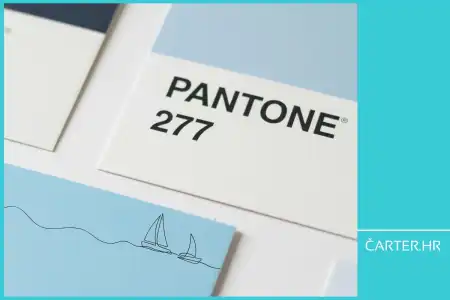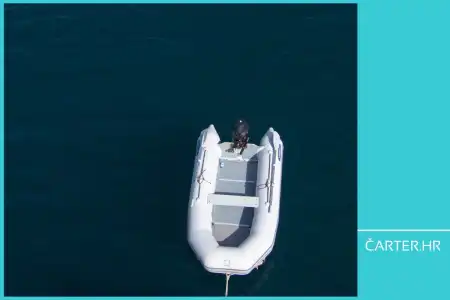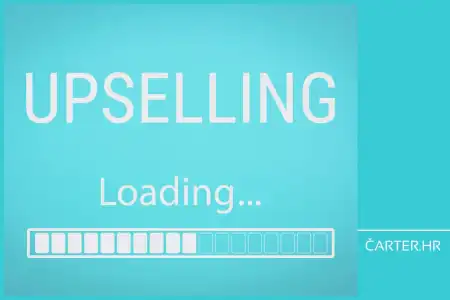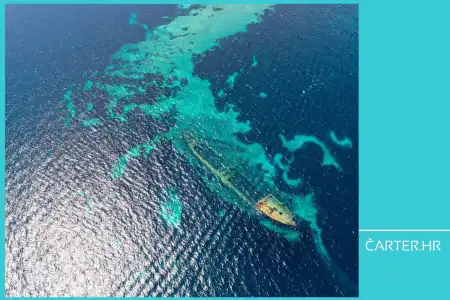
- 27.05.2024.
- News, User experience, Web design
What defines a superb website? If you are intending to renew or create a new website, there are a few things you should be aware of, even if they are not your responsibility. Continue reading to learn what features a website must have to be technically sound and user-friendly.
Thinking of updating your website or making a brand-new one? Good idea.
But what makes a good website?
A good website seamlessly combines technical performance and user satisfaction. Its backend (data and infrastructure that make the web functional) must load fast and have smooth functionality. At the same time, the frontend (what users see on your website) should be intuitive and visually appealing for the end users.
For a website to be properly balanced, so to speak, there are three things that are important: speed, design, and usability.
A website must load quickly, look good, and be easy to use.
Sacrificing one for the others leads to a subpar experience for users.
And that is the most crucial thing – the website must be built for people, for your audience.
Plan your website according to your audience
First, you have to identify your audience.
Know who you're building a website for.
Understanding your target audience's preferences and needs is the first step. This helps make the website's design, content, and functionality meet their expectations.
Who are those people? Old retirees, who have come to sip wine and hike? Young adventurers, who will try to visit as many islands as possible and try as many thrills as they can? People with deeper pockets that will not ask for a price?
Ask yourself one more thing – which of those can your vessels accommodate?
What do you want to achieve with your website?
Define what you want your website to accomplish. While it's understood that for yacht charter companies, it's booking, you must also provide proper information to build a sailing community around your brand.
With a clear goal, you'll be better equipped to explain your website ideas to a developer.

Designing for the user - create an engaging experience
A clean, simple layout and a clutter-free website design enhance usability and aesthetic appeal. They allow users to navigate your site without feeling overwhelmed or not knowing where to look first.
Choosing the right palette colours can influence emotions and actions. Choose colours that align with your yacht charter's brand and appeal to your target audience.
But also, keep in mind that you have to stand out in a sea of others who are just like you.
Pick readable and aesthetic fonts because - typography matters! Fonts should be legible and complement the overall design. The text must be readable for an engaging experience.
Users should be guided throughout the website by design, colour, and layout. The content must be organized by priority, with important elements highlighted, such as your yacht offer on top, and clear and noticeable calls to action, such as “Book now” or “Learn more”.
Build a solid technical foundation for your website
Choosing a suitable hosting service is vital to your website's success. Sometimes, your website developer can do that for you.
Still, there is a list of things in which you must be at least superficially knowledgeable. After all, it is on your yacht charter's website.
Reliable hosting ensures that your website is always accessible to visitors. This means that when someone types your website address, it loads quickly and doesn't crash or lag. You must also consider factors like uptime, speed, and customer support.
Uptime refers to the amount of time your website is online and accessible, i.e. operational without any interruptions. Some providers are known for their high reliability, ensuring your site is almost always available to users.
Speed is how fast your website loads. Fast load times are crucial because slow websites can frustrate visitors and make them leave. Hosting services like A2 Hosting and WP Engine are praised for their speed optimization features, which help your site load quickly even when there's a lot of traffic.
Good customer support means you can get help whenever you run into problems. Choose a hosting provider that offers 24-hour support through various channels.
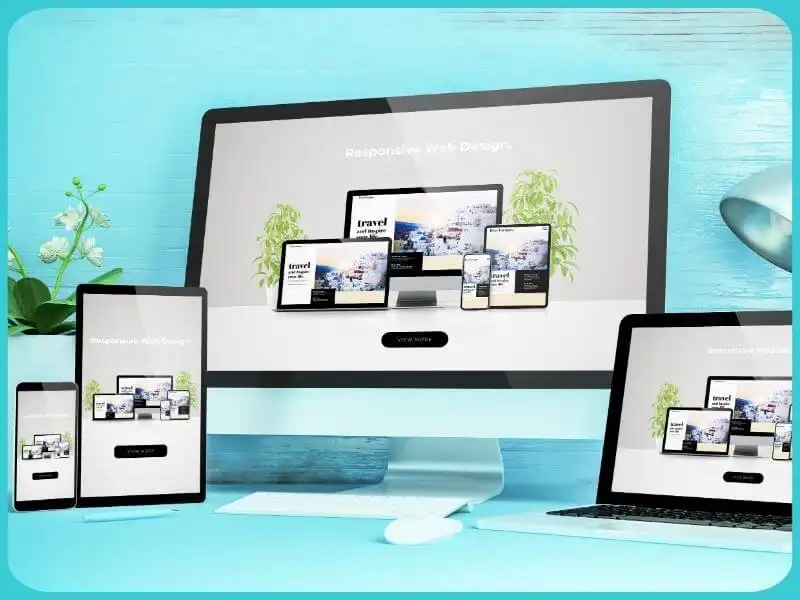
Mobile responsiveness, i.e. designing for all devices
More and more people access websites using their smartphones and tablets. This means your site should look good and work well on all screens, from large desktop monitors to small mobile screens.
Responsive design means your website will automatically adjust its layout based on the device. For example, Airbnb's website has a great user experience, whether you're on a phone or a computer.
Websites should be tested regularly on different devices to ensure compatibility. Tools like Lighthouse or Page Speed can help you see how your site looks and works on various screens.
A fast website is crucial for improving your search engine rankings (and keeping visitors happy). Here are some techniques to speed up a website:
- Caching stores a version of the website so it can be delivered quickly to users. Tools like W3 Total Cache and WP Super Cache for WordPress can simplify this process.
- Large images slow down a website, so you should use image compression to maintain fast load times. Tools like TinyPNG reduce the size of images without losing quality. For instance, e-commerce sites use
- Reducing the size of HTML, CSS, and JavaScript files by removing unnecessary spaces and characters is also essential. Tools like Minify and UglifyJS can help with this.
Security is improtant, to protect your website from hackers and other threats, and these practices will keep your site safe:
- Secure Coding Standards: Guidelines like those from OWASP (Open Web Application Security Project) develop secure web applications. These standards help avoid common security issues like SQL injection and cross-site scripting.
- Regular Updates: All software, including content management system (CMS), plugins, and themes, should be up to date. Updates often include security fixes. For example, WordPress releases regular updates to improve security and functionality.
- Use HTTPS: The website must use HTTPS, which encrypts data between the user's browser and your server. This protects data that needs to be secure, like credit card numbers. Most modern websites use HTTPS to secure user data.
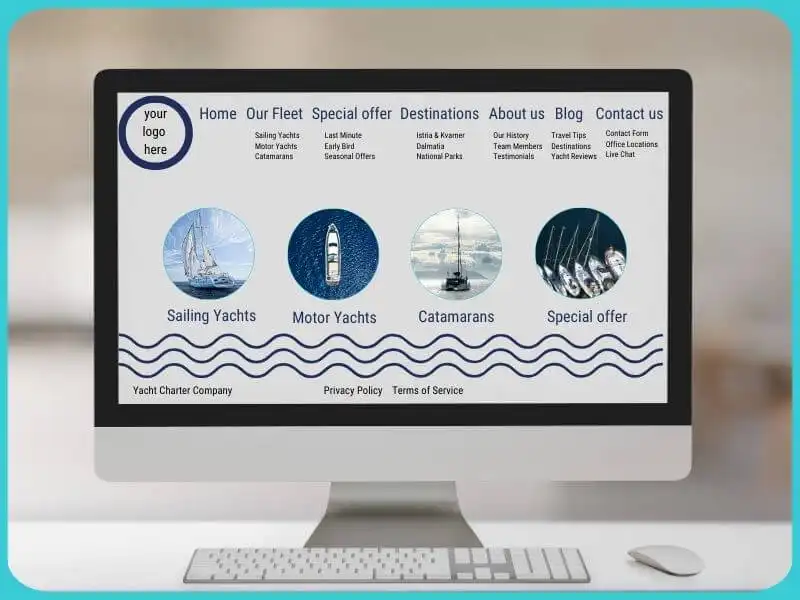
Enhance usability - make your site intuitive
People must navigate through your website with ease.
Effective navigation helps users find information quickly, so use clear menus, internal links, and a logical structure.
A well-organized website sitemap ensures that users can easily find what they're looking for. A sitemap is a structure of a website's pages and content, organized hierarchically to help users and search engines navigate the site efficiently.
Example of a yacht charter website sitemap:
- Home
- Yacht Fleet
- Special Offer
- Destinations
- About Us
- Blog
- Contact Us
Additional:
- Customer/Log in Portal
- Charter Guide
- FAQs
This kind of organization makes it easy for visitors to quickly find the information they need.
Internal links within content, such as links from "Yacht Fleet" page to destination guides or "Special Offer", help users explore more information seamlessly, enhancing their overall browsing experience.
You also must encourage user interaction with calls to action – CTAs.
CTAs should be compelling and easy to find. They guide users toward desired actions, such as signing up or making a booking.
For instance, Netflix uses a prominent "Get Started" button on its homepage, which stands out due to its bold colour and strategic placement. This button prompts users to take immediate action.
Regularly test your site and gather user feedback to identify areas for improvement.
Google Analytics and Hotjar can give you information about user behaviour.
A blog post on your website can also be helpful if you use feedback forms at the end of each post to gather reader input. You can make adjustments and layout tweaks based on users' information to enhance user experience.
Keep your website "fresh" and alive with regular content updates
Frequently update your content to keep it relevant and engaging. This also helps with SEO.
Use analytics tools to track performance metrics. Monitor traffic, bounce rates, and user behaviour to meter effectiveness.
Make sure your software and security measures are regularly updated to protect against threats.
Encourage and respond to user feedback. It provides valuable information on how you can improve their experience.
After all, your website is built so you can rent your vessels, but it's ultimately built for people making those bookings.
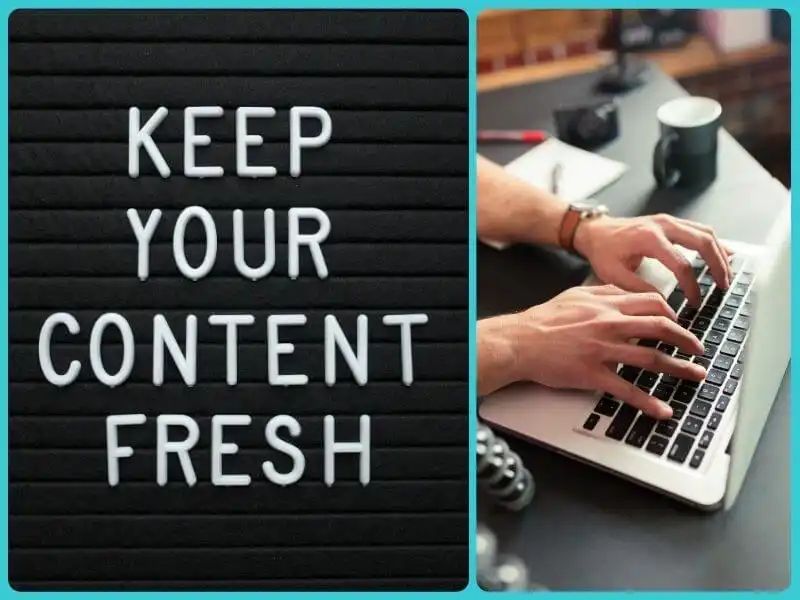
What does a website need? A valuable and relevant content.
Quality content should engage users and build trust in your yacht charter company.
When writing for your website, keep the content engaging and easy to read. Use headings, bullet points, and concise paragraphs to improve readability.
Use multimedia, such as images, videos, and infographic elements, as they can make content more engaging and help explain.
For your website to succeed, you must make the content discoverable. Optimize your content for search engines - i.e. use relevant keywords, meta tags, and quality links to improve visibility.
Don't forget to index it on the Google Search Console; otherwise, what's the point.
To index your website, you must sign up for Google Search Console, add your property, enter your homepage into the URL Inspection tool, and finally click "Request indexing."
As long as your site structure is good, Google will be able to locate (and index) all of the pages on your site.
Have trouble understanding how exactly your website should be for end users and look like it? Here are examples of websites that are (almost) perfect:
- Google - speed and minimalist design
- Apple - clean layout and visual hierarchy
- Amazon - seamless navigation and user interaction
Do you need help setting up your website or don't know what your priority should be? Do you need help creating quality content?
Contact us, and we will make a strategy for you.
Sign up for our newsletter or follow us on our social media: Facebook, Instagram, and LinkedIn.
Categories of trends
- News
- Sale
- Marketing
- SEO
- Web design
- Social media
- Technology
- Regulations
- Management
- Education
- Finances
- User experience
Newsletter
Sign up for the newsletter and receive the latest trends and tips straight to your inbox
